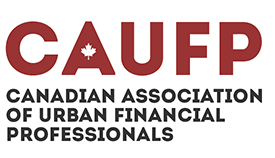As I remain in isolation and follow current injustices against black people, my mental health has been pushed to new limits. We’ve heard the painful stories of George Floyd, Breonna Taylor, Ahmed Aubrey and Regis Korchinski. I have advocated for their deaths to be properly investigated through sharing materials to educate others who are ignorant of blatant and systemic racism embedded in our society. This constant effort to open dialogue and shine light on the inequalities has left me with Racial Battle Fatigue. William Smith coined this term in 2003, it can be described as a “cumulative result of a natural race-related stress response to distressing mental and emotional conditions,” (Morgan Taylor Goodwin). Common physiological and psychological effects of traditional coping methods can include fatigue, problem eating, high blood pressure, diabetes, stress, anxiety, panic attacks, depression, and thoughts of suicide (Georgia Southern University). I am not listing these side effects to scare you but to encourage you to take your mental health seriously and evaluate how you are coping today.
I did not give myself the time and space to process, instead I pushed through with an unrealistic expectation the pain would go away. In this blog, I will share practices I found to help cope with what is happening today. It is important to remember mental health doesn’t have a one size fits all approach, you should experiment with anything that appeals to you.
-
Acknowledge My Emotions
“Not allowing yourself to feel is a colonial response to trauma, healing comes from honouring your emotions,” (Dr Rosalesmeza). Taking care of myself started with acknowledging how I felt. I reflected on why I believed pushing my feelings aside was the appropriate way to cope. It felt like the only way to function during my day-to-day would be through compartmentalizing or disassociating from my feelings. By taking the time to sit down and recognize low moments, it gave me the opportunity to unpack my emotions and move forward from there.
-
Take a Break From Social Media
A break from Instagram was the first step in giving my mind the space to be free from constant triggers. It’s important to unplug from platforms that are pushing information and imagery that can be painful. In the article, Why taking a break from social media can be good for your health, Jennifer Palisoc highlights that breaks from social media can introduce space to practice mindfulness and gives you back time to sleep and exercise. It’s important to use your time to do things that bring you joy. My social media break gave me the space and time to write poetry, binge watch Rush Hour, and dance to old songs.
-
Talk About It With Others
The publicized events happening in our community remind us that as a black person we are all tied to these acts of injustice. When I watch people who look like me murdered simply for the colour of their skin, I feel the pain immediately. There was a sense of isolation when I tried to process and make sense of what was happening. Initially, I avoided discussions because I feared vocalizing it would make these feelings of grief stronger. I am fortunate to be surrounded by strong black people and allies who are comfortable sharing their thoughts. It has worked as a healing circle that brought validation to my concerns and reinforced solidarity; I left feeling a bit lighter than when I entered the conversation.
-
Practice Valued Based Living
Dr. Karen G. Martinez and Dr. Jessica Graham-LoPresti hosted a webinar that focused on the Effects of Racism on Mental Health. In the session, they used the term valued living to help us navigate times of adversity. Valued living can be described as “having a notion about what we want out of life and then making a commitment to ourselves to take action in service of those values,” (Valued Living). Dr Graham-LoPresti stresses the importance of asking yourself, what is important to you and who you want to be in the context of this world. Opening this dialogue has made my actions moving forward more purposeful and responding to moments that don’t sit with me easier to handle. I have a clear compass that helps give direction and reinforce my responses.
“Caring for myself is not self-indulgence. It is self-preservation, and that is an act of political warfare,” (Aurde Lorde). Over the past few weeks I have been filled with grief from witnessing black people remain targeted and fear that these cries for change will be ignored. These feelings will not go away overnight, they may grow as racist acts continue to be filmed and shared. It’s important to take care of your mental health in order to continue to move forward.
Note: If you or someone you know is experiencing serious mental health concerns please seek professional help. Some great resources include Across Boundaries, Naseesha, and Taibu.
Reference:
Racial Battle Fatigue: What Is It and What Are the Symptoms?
Morgan Taylor Goodwin – https://medium.com/racial-battle-fatigue/racial-battle-fatigue-what-is-it-and-what-are-the-symptoms-84f79f49ee1e
Georgia Southern University
https://students.georgiasouthern.edu/counseling/coping-with-racial-battle-fatigue/
Why Taking a Break from Social Media Can Be Good For Your Health
Jennifer Palisoc-Jennifer Palisoc-Jennifer Palisoc – https://health.sunnybrook.ca/mental-health/social-media-break-health-benefits/
The Effects Of Racism on Mental Health: How To Cope
https://adaa.org/webinar/consumer/effects-racism-mental-health-how-cope
Valued Living
https://www.centerforvaluedliving.com/about/valued-living/


